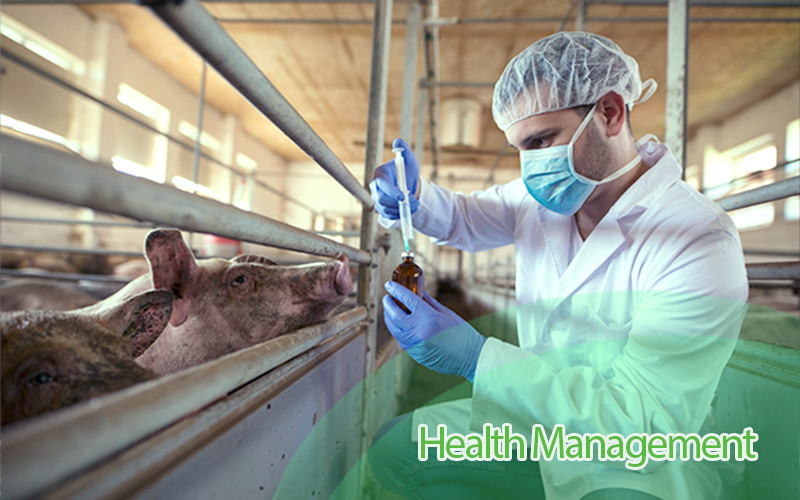How to Maintain a Boar for Better Breeding Performance
Unlocking the full potential of your breeding program begins with proper boar maintenance. As a key player in achieving optimal breeding performance, the boar requires meticulous care and attention. Proper boar maintenance is crucial for successful breeding operations and overall herd productivity. Effective boar management directly impacts breeding performance and genetic progress. To achieve better breeding outcomes, it is essential to focus on key factors that contribute to boar health and well-being.
In this comprehensive guide, we will delve into the essential practices and techniques to keep your boar in prime condition, ensuring that he performs at his best when it matters most.
Boar maintenance practices
Providing a Balanced and Nutrient-Rich Diet
A balanced diet is vital to support optimal health and breeding performance in boars. Their nutritional requirements vary at different stages of development. A well-formulated diet should consist of the right combination of proteins, carbohydrates, fats, vitamins, and minerals. Ensuring boars receive proper nutrition enhances their reproductive capacity and overall vitality.
Implementing Regular Exercise and Conditioning
Regular exercise plays a significant role in maintaining boar fitness and muscle development. Designing an exercise program that includes activities like walking, running, or swimming promotes physical well-being. By avoiding excessive weight gain or obesity, breeders can prevent negative impacts on breeding performance and maintain boar agility.
Proper Housing and Environmental Management
Creating a comfortable and stress-free housing environment is essential for boars. Adequate space and proper ventilation help prevent heat stress, which can adversely affect reproductive function. Implementing suitable flooring, bedding, and waste management systems ensures cleanliness and provides a conducive environment for boar health.
Managing Reproductive Health and Breeding Soundness
Regular veterinary checks are crucial to monitor the reproductive health of boars. Routine semen evaluations assess fertility and sperm quality, enabling breeders to identify any potential issues. Implementing preventive measures, such as vaccination protocols and proper hygiene practices, minimizes the risk of reproductive diseases that can impact breeding performance.
Controlling Boar Libido and Mating Behavior
Controlling boar libido is essential for successful breeding. Implementing strategies to manage boar sexual behavior and prevent excessive aggression ensures a safe breeding environment. Timing and frequency of boar exposure to sows play a critical role in maximizing breeding efficiency and optimizing mating success.
Heat Stress Management
Heat stress can significantly impact boar fertility and breeding performance. To mitigate its effects, breeders must provide shade, cooling systems, and access to fresh water during hot periods. Adjusting breeding schedules and practices during extreme heat conditions minimizes stress and maintains boar reproductive function.
Disease Prevention and Biosecurity
Strict biosecurity protocols are essential to prevent the introduction and spread of diseases. Vaccinating boars against common swine diseases is a proactive measure. Quarantine procedures for newly introduced boars minimize disease transmission and protect the health of the overall breeding herd.
Regular Health Monitoring and Treatment
Establishing a regular health monitoring program enables breeders to track boar body condition, weight, and overall well-being. Timely treatment of any health issues or injuries is crucial to prevent long-term impacts on boar fertility and breeding performance. Routine veterinary care plays a vital role in maintaining boar health.
Breeding Management and Record Keeping
Implementing proper breeding management practices optimizes reproductive efficiency. Maintaining accurate and detailed breeding records for each boar and sow provides valuable data for analysis. Analyzing breeding data helps identify trends, evaluate performance, and make informed decisions to enhance breeding outcomes.
Conclusion
Maintaining boars for better breeding performance requires careful attention to key strategies. Proper nutrition, exercise, housing, reproductive health management, and disease prevention are critical aspects. By prioritizing boar maintenance, breeders can optimize breeding outcomes, ensure long-term herd productivity, and achieve genetic improvement in their operations.




